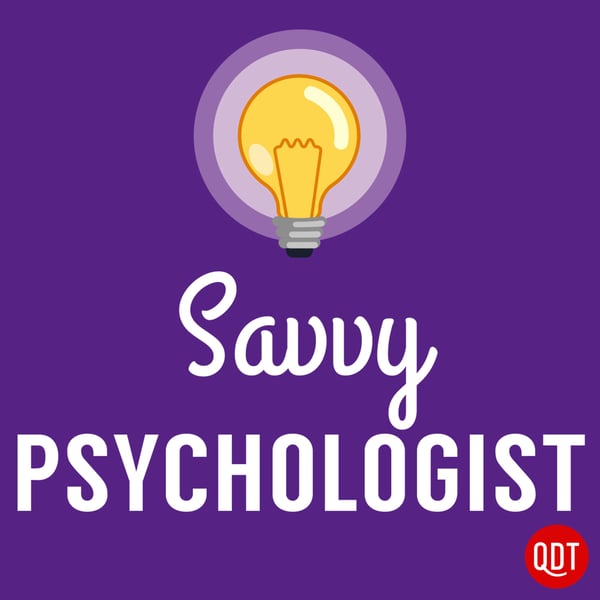How to fight back against communication assassins
Savvy Psychologist
Macmillan Holdings, LLC
4.7 • 1.4K Ratings
🗓️ 7 October 2022
⏱️ 10 minutes
🧾️ Download transcript
Summary
Transcript
Click on a timestamp to play from that location
| 0:00.0 | It appears that many of you have discovered that you have assassins lurking around your relationships. |
| 0:10.0 | So today we're going to discuss ways to counterattack and send these assassins into the shadows. |
| 0:17.0 | Welcome back to Savvy Psychologist. I'm your host Dr. Monica Johnson. |
| 0:22.0 | Every week on this show, I'll help you face life challenges with evidence-based approaches, a sympathetic ear and zero judgment. |
| 0:31.0 | In today's episode, I'm going to review with you the antidotes for the communication assassins that I introduced in the last week's episode. |
| 0:40.0 | This will give you a general idea of how to start to reduce the impact of these communication errors on your relationships. |
| 0:48.0 | If you haven't listened to the episode on the four communication assassins, now's the time to do so. |
| 0:55.0 | There's a link in the description of these episodes or just scroll back a bit in your podcast app. |
| 1:01.0 | Last week I introduced criticism, an assassin that attacks the whole person and can be damaging to the relationship because it's judgmental and often quite mean. |
| 1:14.0 | Note that a complaint is different because it focuses on the behavior and your experience of that behavior. |
| 1:22.0 | The counterattack is called the gentle startup, which involves complaint without judgment or blame. |
| 1:30.0 | I'm sure you've heard about using eye statements and these come in handy here. |
| 1:36.0 | As a reminder, when you use you statements, it can feel like a punch in the gut each time. |
| 1:43.0 | For example, you don't care about me, you're so lazy or you're worthless at this, I can't count on you for anything. |
| 1:53.0 | While I used an eye statement in the last example, it actually has the effect of driving the criticism deeper and is not the correct use of eye statements. |
| 2:03.0 | This is kind of like the spelling rule of I before E except after C, except for when eye statements are used after you statements during criticisms, it's all wrong. |
| 2:16.0 | You instead want to describe the problem and express your need using eye statements. |
| 2:23.0 | An eye statement can be literal or it can be implied. |
| 2:27.0 | You can feel the eye statement in the dialogue because eye statement utilization requires the user to take ownership of their observations and responses without judgment. |
| 2:40.0 | For instance, let's say your roommate isn't taking out the trash when it's their turn. |
| 2:46.0 | If you set the statement, you're worthless at this, I can't count on you for anything. That's obviously a criticism. |
| 2:55.0 | Another way you could say this where the eye is obvious is, I noticed that you haven't taken out the trash for the last four weeks. |
... |
Please login to see the full transcript.
Disclaimer: The podcast and artwork embedded on this page are from Macmillan Holdings, LLC, and are the property of its owner and not affiliated with or endorsed by Tapesearch.
Generated transcripts are the property of Macmillan Holdings, LLC and are distributed freely under the Fair Use doctrine. Transcripts generated by Tapesearch are not guaranteed to be accurate.
Copyright © Tapesearch 2025.

